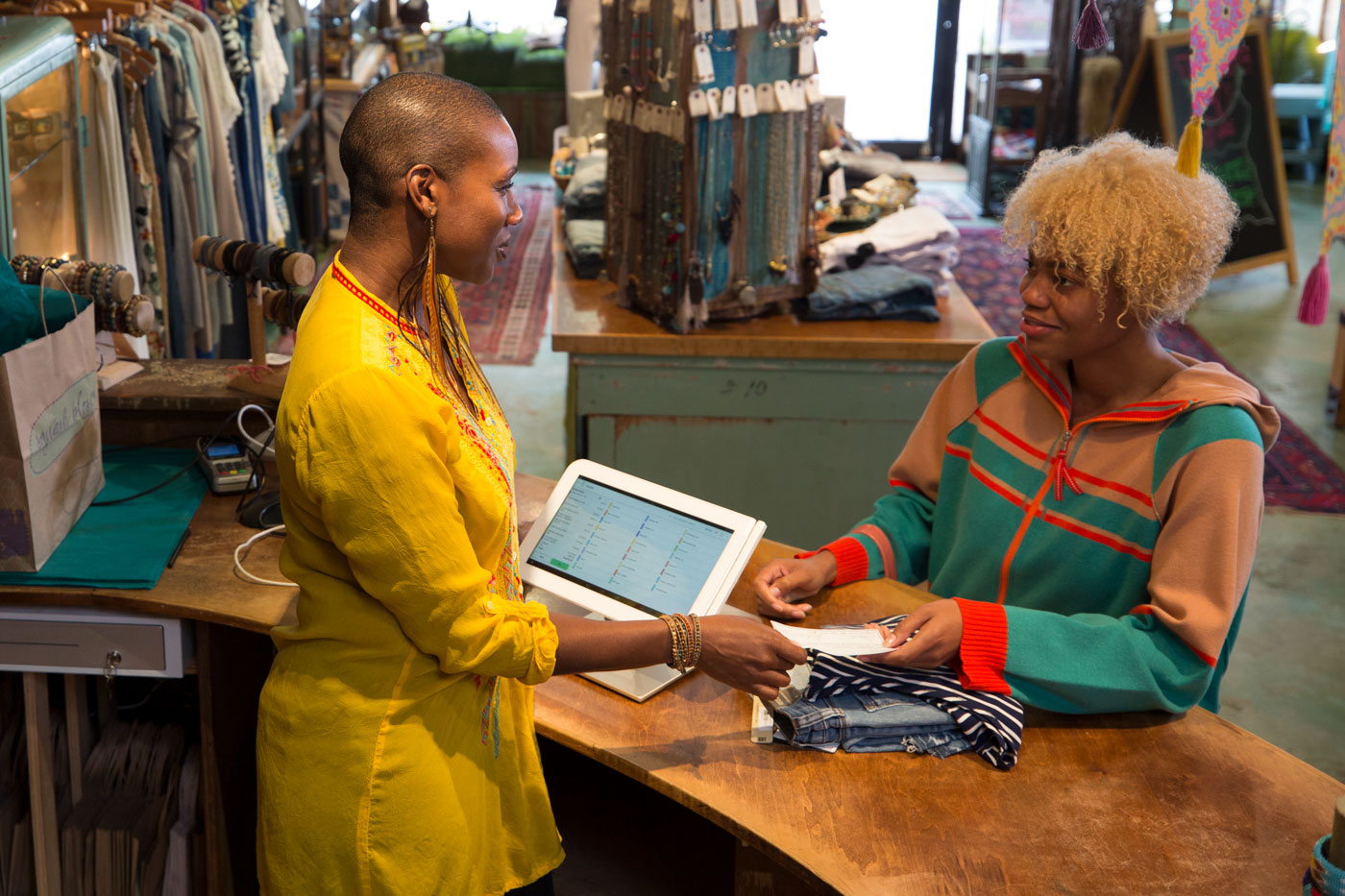Supporting Black Business this August is more important than ever. Here’s why.
Lynn Brown
5 min read
The protests of the last few months have resulted in increased awareness of racial inequality in America, leading many people to seek out ways to support the Black community. This much deserved attention has put this month, National Black Business month, in the spotlight as individuals and companies alike have vowed to support Black-owned businesses in these uncertain times and into the future.
National Black Business month was launched in 2004 by historian John William Templeton and engineer Frederick E. Jordan Sr. It was conceived not only to bring new customers to the more than two million Black-owned businesses in the country, but also to help shape and inform policy decisions that affect these businesses. Though they account for about 30 percent of all minority-owned businesses, Black-owned businesses still face disproportionate hurdles both in terms of startup and in successfully turning a profit. National Black Business month began as a way to raise awareness of those challenges and to advocate for the entrepreneurs that run Black businesses, as well as those who would like to.
For example, funding challenges are consistently listed as the top concern for Black small business owners. Black-owned businesses still receive significantly less funding and have overall less access to capital than other businesses, which can make starting and sustaining new businesses particularly difficult. Black small business owners are also more likely to turn to personal credit and investment for their business capital needs, which can create even more uncertainty. Research has shown that minority applicants still receive increased scrutiny and overall poorer treatment when trying to secure a small business loan. As a result, many African Americans never even attempt to secure outside funding for their businesses, making them significantly more vulnerable to shutting down.
Black business owners also have less access to mentorship and other peer support than other merchants. Mentorship and networking opportunities are important aspects of small business ownership that are often overlooked; access to a mentor can result in higher revenues and increased growth for small businesses. Mentors can help small business owners in a variety of ways from offering business and marketing advice to expanding access to networking opportunities, all of which can help new business owners learn to stay afloat and become profitable faster.
The Covid-19 pandemic and resulting shutdown have only exacerbated the issues that Black businesses face. Already struggling under tight budgets, many businesses have found themselves in dire straits because of the nationwide shutdowns, but Black businesses have been particularly hard hit. Existing issues with securing funding have carried over into the PPP loan program and other government-backed relief funds available to small businesses, including the CARES Act. The Black community has also been hit much harder by the pandemic health-wise, a fact that has even larger implications with regards to Black-owned businesses. They are much more likely to be owner-operated sole proprietorships, and thus are that much more likely to be forced to shutter for good if a family member or the owner becomes ill.
Despite the numerous setbacks and ongoing struggles, owning a business continues to be a goal for many Black Americans and many such businesses are thriving. Those small business owners who do make it happen report an overwhelming sense of job satisfaction, and “pursuing a passion” is listed as one of the number one reasons Black Americans start their own business in the first place.
In fact, there’s been a significant increase in the number of Black small business owners over the past few years, with many of them being young women. Black-owned businesses are also much more likely to be community oriented, with the top earning industries for Black businesses being in the health care and social assistance markets. Even Black businesses such as retail, repair, and maintenance companies often give back by stimulating the economy in neighborhoods around the country. Thus, Black-owned businesses, if given the support they need, can become engines for more widespread economic opportunities within their community.
It’s clear that the health and success of Black-owned businesses is important both to the Black community and to the country at large. So what can be done to encourage more Black entrepreneurs to open businesses? And how can we help support these businesses so that they can thrive?
The answer is two-fold:
- First, more needs to be done to assure that Black entrepreneurs and existing Black businesses get the same access to funding and networking opportunities as other businesses. This means encouraging and supporting legislation that ensures equal access to these things for all businesses, as well as better publicizing the opportunities that do exist. Increased funding and opportunities for mentorship of Black entrepreneurs are also needed. As are harsher penalties for banks or other institutions that are shown to have discriminatory lending practices when it comes to small businesses run by Black Americans.
- Second, an increase in support for Black businesses on a more individual level also needs to happen. Websites like Okra, Official Black Wall Street, We Buy Black, or I am Black Business can help consumers locate businesses to patronize in their area. Amplifying the marketing of these businesses via social media or through online review websites like Yelp can also give a much needed boost to a company’s marketing efforts. In general, making a concerted effort to find and support Black businesses, whether in your community or online, can make a significant difference not just to that business owner, but to their community.
The events of the past few months have left many people wondering how best to use both their voices and their buying power to pull together and uplift those that need it most. This year’s National Black Business month gives us the opportunity to make a difference to the Black-owned businesses in our communities.
Lynn Brown is a Black journalist and educator who specializes in creating education, culture and history content for media outlets, nonprofits, and small businesses. Visit her online at literarylynn.com.
Sources:
- Black Business Month
- The Brookings Institution
- Cosmopolitan
- Forbes
- Guidant Financial
- National Day Calendar
- The New York Times
Related Posts
Entrepreneurship toolkit for business owners with disabilities
Corporate social responsibility: 3 ways to change the world with your small business
Popular Topics
Stay In Touch
Sign up and learn more about Clover.
Thank you for your subscription!
Recent Stories
- Jewelry store supplies and equipment needed for opening day
- How small businesses can use employee discounts to retain staff
- Tips and tricks for opening an outdoor pop-up restaurant
Please share your contact information
to access our premium content.
Thank you for sharing your contact information.
Download Now





